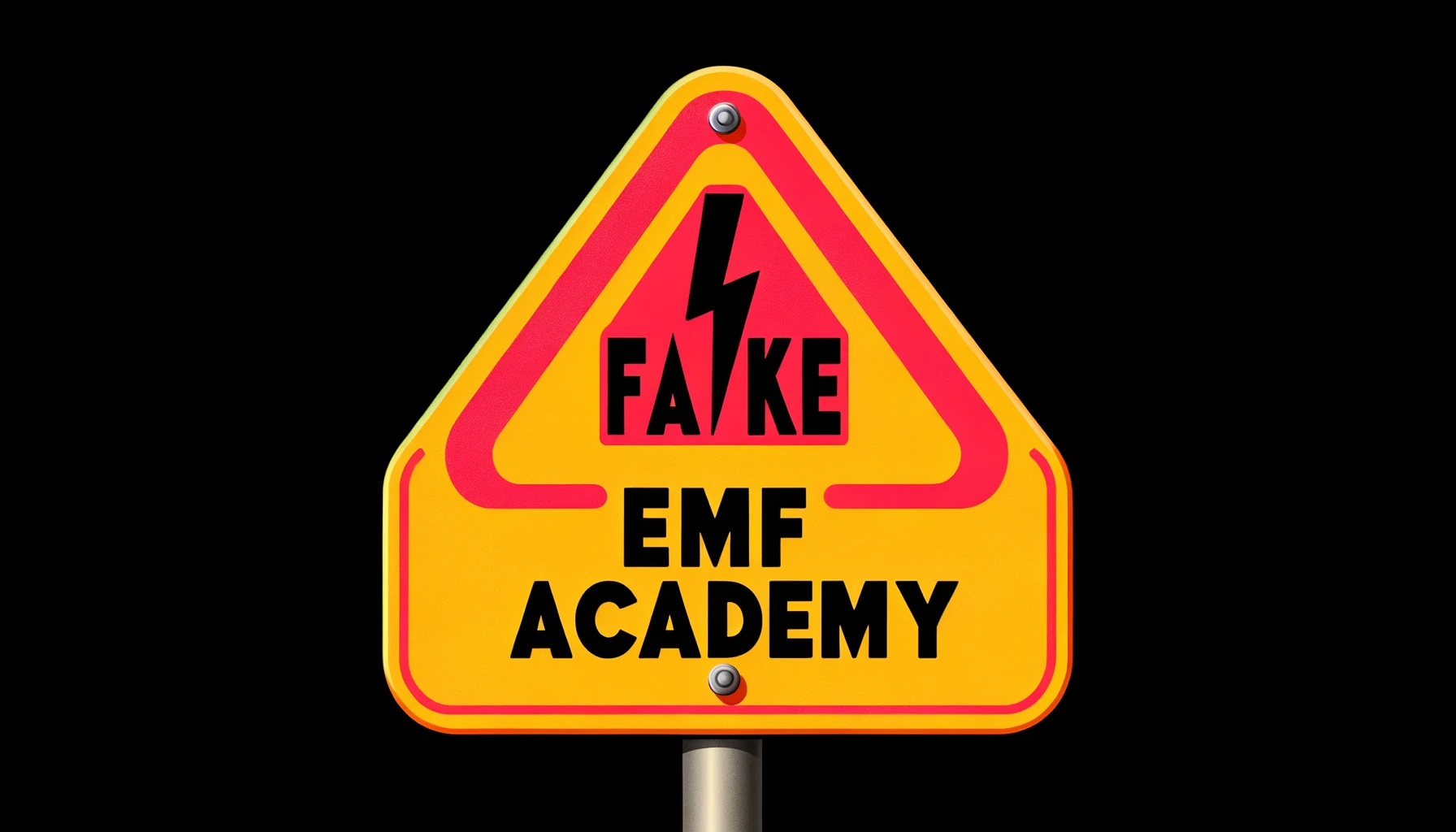This is being posted because I have written to the site owner several times to correct misleading percentage claims for RF Safe-designed phone cases. The EMF Academy claims that we claim 99% reductions, despit the fact you can check a quarter of a century of website history to see we have never made percentage claims in 25 years, never once! The webmaster for EMF Academy refuses to respond to request so I can only assume the medium post investagation done by August Brice is accurate.
In the digital age, the internet is a vast reservoir of information, but not all of it is trustworthy. A notable example is the rise of fake EMF (electromagnetic field) safety websites, which masquerade as legitimate sources of information but are primarily focused on selling products through affiliate links, often leading to Amazon.
The Rise of Fake EMF Sites: A recent investigation has uncovered the deceptive practices of one such site, known as EMF Academy. The site, which initially appeared to be a resourceful platform for EMF-related information, was later revealed to be using a fake persona, “Christian Thomas”, to promote its content. This character was fabricated, complete with a stock photo and a made-up backstory.
Modus Operandi: The fake EMF site’s primary goal is to monetize information by linking to products purported to protect against EMF radiation. These products ranged from plants and pendants to more sophisticated gadgets, many of which have been debunked by scientific research. The site cleverly disguised its commercial intent by presenting itself as an educational resource, making it difficult for the average reader to discern its true purpose. One thing is certain, the products with better affiliate commissions are always presented as better.
The Danger of Misinformation: The real harm lies in the misinformation spread by such sites. EMF Academy, for instance, promoted unproven and sometimes harmful products, including very poorly designed anti-radiation cases that can increase your radiation exposure, misleading readers seeking genuine advice on EMF protection. This not only leads to wasted expenditure but also instills a false sense of security regarding EMF protection.
How to Spot and Avoid Fake EMF Sites:
- Verify Credentials: Look for the author’s or site owner’s background. Genuine experts usually have verifiable qualifications and a transparent online presence.
- Check for Diverse Content: Authentic sites typically feature a range of content, not just articles linking to products.
- Be Wary of Excessive Product Links: A high number of affiliate links, especially leading to product sales pages, is a red flag.
- Research Product Claims: Cross-verify the efficacy of recommended products with reputable scientific sources.
- Look for Independent Reviews: Independent reviews or discussions on forums can provide insights into the site’s credibility.
Conclusion: The internet is a double-edged sword, offering both valuable information and deceptive content. Sites like EMF Academy exploit the lack of regulation in digital spaces to promote their agenda. As consumers and readers, staying informed and vigilant is crucial for navigating this landscape safely. Always question, research, and verify before trusting an online source, especially when it comes to your health and well-being.
Call to Action: We encourage readers to share this article to spread awareness.








